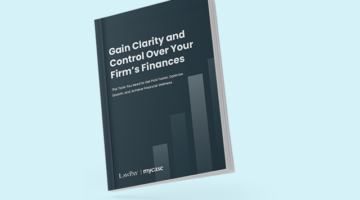 A few weeks ago, I received a review copy of “The Cybersleuth’s Guide to the Internet,” written by Carole A. Levitt and Mark E. Rosch. This book, which was recently updated and is now in its 14th edition, was written to guide lawyers through the process of using the internet to conduct effective and free investigative and legal research.
A few weeks ago, I received a review copy of “The Cybersleuth’s Guide to the Internet,” written by Carole A. Levitt and Mark E. Rosch. This book, which was recently updated and is now in its 14th edition, was written to guide lawyers through the process of using the internet to conduct effective and free investigative and legal research.
There’s a wealth of information available online. For busy lawyers, locating a key piece of data can be instrumental to a client’s case. The trick is knowing where it can be found and how to access it. That’s where this book comes in. Written with lawyers in mind, it provides everything attorneys need to know about conducting online research.
At the outset, the authors delve into the ins and outs of the most popular search engines, explaining how to use them to locate information. They spend an entire chapter on Google — rightly so — but also cover Bing and DuckDuckGo.

Best Practices In Trust Accounting: What Every Lawyer Needs To Know
Learn legal trust accounting best practices to ensure compliance and protect client funds. Discover expert tips to set your firm up for success.
Two of the most useful chapters cover locating people and public records online. In Chapter 9, the authors provide information on ways to use the internet to locate people and conduct background checks. In it, the authors explain how and why to research individuals online, noting that many of the most free, popular sites they’d recommended in the past are now fee-based.
According to the authors, one site that continues to be free and incredibly useful is Pipl, which is described in full. Also covered are the ins and outs of using Google effectively for this purpose, including search methods that yield relevant results.
In Chapter 10, the authors focus on websites that provide access to free public records and publicly available information. The websites discussed include:

Take Control Of Your Firm’s Finances With Tools Built For Success
Position your firm for long-term growth with better financial visibility and control. Learn how to track performance, manage spending, and plan strategically—download the full e-book now.
• Portico;
• BRB Publications; and
In Chapter 12, you learn this interesting tip: you can use your public library card to gain access to expensive pay databases for free via your library’s online portal. To do so, you’ll need a library card (and possibly a pin number), and will then need to locate the databases on your library’s website. Databases available at some libraries include the full text of the Wall Street Journal and New York Times, Gale’s Business Directory (provides background information, broker reports, and more), and access to ReferenceUSA or AtoZDatabases, which include addresses and phone numbers for millions of people and businesses. In this chapter, the authors walk you through how to use many of these databases.
In subsequent chapters you’ll learn how to: 1) use court dockets as investigative tools; 2) locate liabilities, including bankruptcies, UCC filings, judgments, and liens; 3) locate assets; 4) access vital records; 5) navigate telephone and address directory websites; 6) locate criminal records; 7) find experts and verify their credentials; and 8) much more. This book even includes tips on searching social networking sites and locating images online.
Because of the mercurial nature of the internet, online content is constantly changing and is updated often. So unfortunately, as soon as this book was published, some of its content was already outdated. But, that’s the nature of the beast and is to be expected when you’re covering internet tools.
Fortunately, the authors maintain updates on their website. So, for example, prior to the publication of the 14th edition, no changes had been made to PACER since 1988. However, since it was published a few months ago, a number of significant changes were made to PACER. Those updates, along with others that are periodically added, can be found here.
For even more tips and tricks from Carole and Mark, make sure to watch the video of this webinar from a few years ago where they share information on using the internet for legal research and investigative purposes.
 Nicole Black is a Rochester, New York attorney and the Legal Technology Evangelist at MyCase, web-based law practice management software. She’s been blogging since 2005, has written a weekly column for the Daily Record since 2007, is the author of Cloud Computing for Lawyers, co-authors Social Media for Lawyers: the Next Frontier, and co-authors Criminal Law in New York. She’s easily distracted by the potential of bright and shiny tech gadgets, along with good food and wine. You can follow her on Twitter @nikiblack and she can be reached at [email protected].
Nicole Black is a Rochester, New York attorney and the Legal Technology Evangelist at MyCase, web-based law practice management software. She’s been blogging since 2005, has written a weekly column for the Daily Record since 2007, is the author of Cloud Computing for Lawyers, co-authors Social Media for Lawyers: the Next Frontier, and co-authors Criminal Law in New York. She’s easily distracted by the potential of bright and shiny tech gadgets, along with good food and wine. You can follow her on Twitter @nikiblack and she can be reached at [email protected].